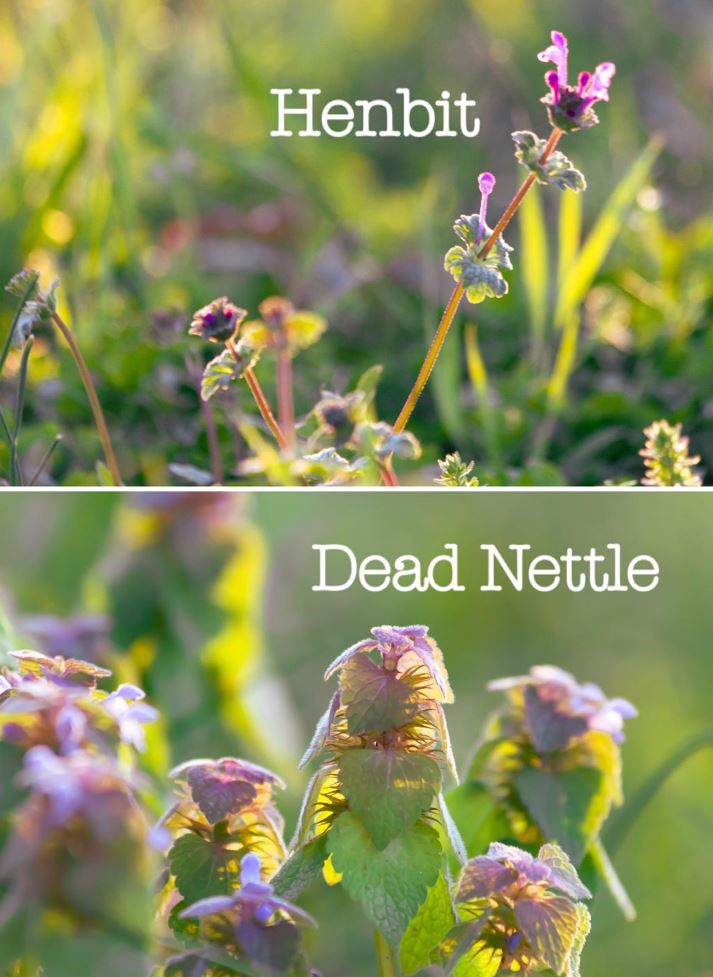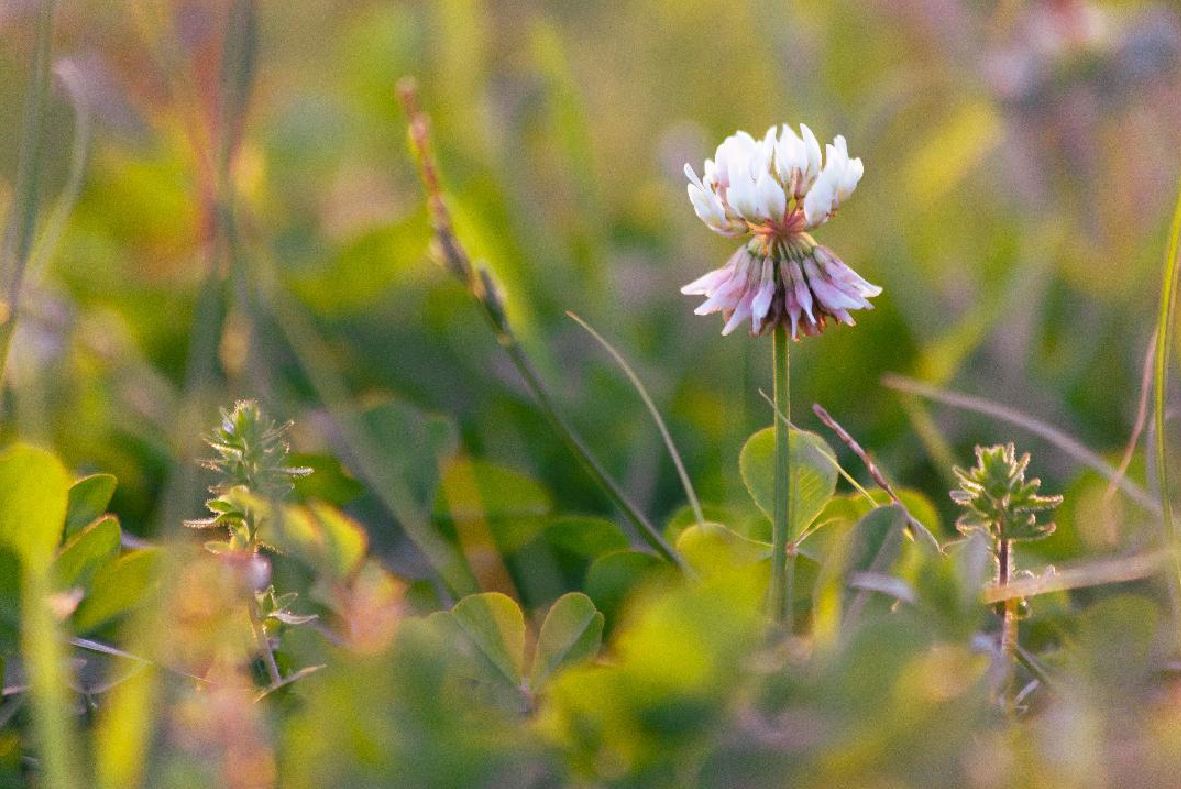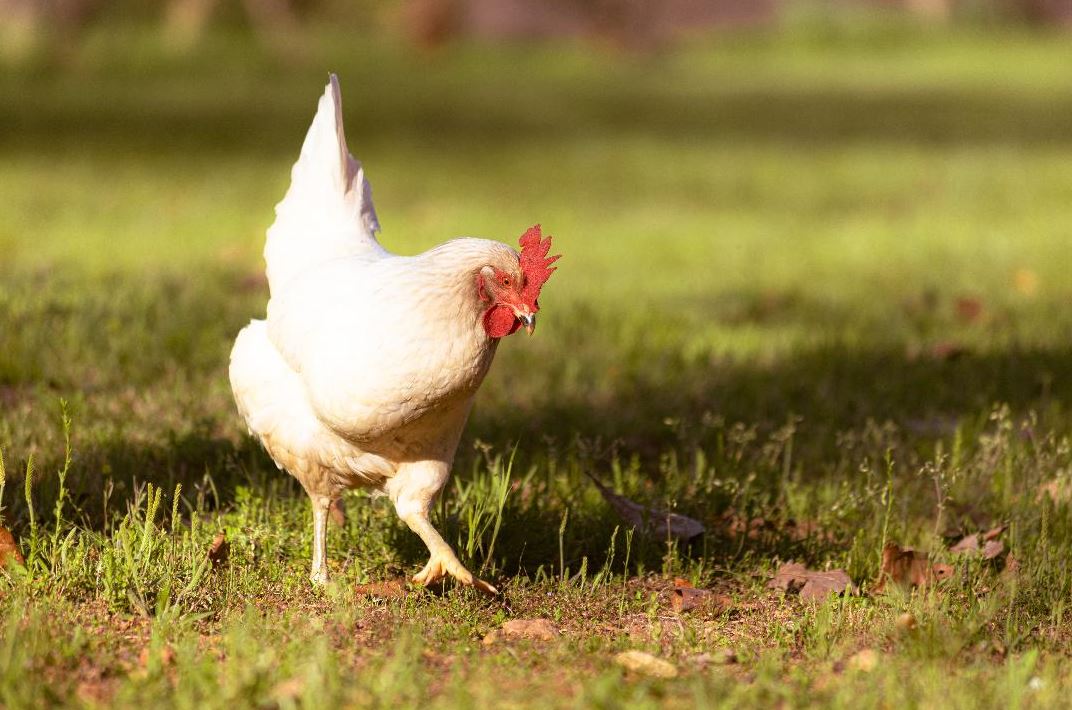Spring is a wonderful time to add fresh freebies to your flock’s diet! Here are some flowers that are safe for your chickens to eat, and chances are, you already have them growing in your yard!
Chickens are omnivores and need nutrients from both animals and plants to thrive. If you let your hens out to free-range, they can usually find these goodies themselves. You can let your flock free range without worry. Chickens like to test everything, but they seem to know what’s good, and what’s not. One little bite and they know instinctively if a plant is safe. If you prefer to leave your birds up in the coop, you can still supply them with edible flowers, it just takes a little more work. The flowers and soft leaves of these plants will be the most palatable for chickens. Chopping the foliage into bite size chunks helps too.
Henbit
One of the very first plants to pop up in yards during the spring is henbit. Henbit, as the name implies, is a favorite of nibbling hens. Henbit is a member of the mint family. It has small, purple trumpet- shaped flowers. The stems are square shaped.

Dead Nettle
Often seen growing alongside henbit, is dead nettle. This hairy member of the mint family also sports purple flowers. The leaves fade from purple down to green in an ombre fashion. Dead nettle does not sting, hence the term, “dead.” A “dead” nettle has lost its ability to sting or cause irritation. Both henbit and dead nettle are full of vitamins, a free source of greens, and both possess anti-fungal, anti-bacterial, and anti-inflammatory qualities! Both of these plants will re-seed themselves each year, so you don;t have to replant them!
Clover Blossoms
This favorite of pollinators is also a great source of calcium for free-ranging chickens. Clover is part of the legume, or bean, family. All parts of the plant are edible for chickens, although they prefer the flowers. Clover contains niacin, which is a necessity for waterfowl. (If you order ducklings this year, give them clover!) The most common type of wild clover is white clover. Most all varieties are safe for chickens to eat. If you have your chickens up in the coop, try offering them a few cups of clover chopped finely. Clover does contain an anti-coagulant that can cause negative effects if too much is consumed. Luckily, chickens will in general know when they’ve had too much!

Nasturtiums–
A colorful, often with orange/red flowers, nasturtiums are beautiful as well as nutritious for chickens. Several years ago I planted some in my flower garden. It didn’t stand a chance and the chickens soon found it and pecked the whole stalk down to a nub! For this reason, I do recommend planting your nasturtiums away from your flock until it has become large and established. Many claim it can be a natural dewormer, though this has not been scientifically proven. It has been proven, however, to be high in vitamin C (helps immune system), vitamin A (helps grown strong bones and make strong egg shells), and acts as a natural antibiotic.
Marigolds
These beauties not only are perennial and easy to grow, but also can repel pests in garden. The yellow pigment responsible for the flowers’ color is called zanthophyll. The pigment exists in the highest quantities in the flowers themselves. It is an anti-inflammatory, increases blood flow, stabilizes respiratory health- and makes egg yolks yellower! Some egg companies even feed dried marigolds to their layers for this very purpose. You may notice extra yellow beaks and feet on your chickens if they eat lots of marigolds. Marigolds are one of my favorites because they are perennial. By collecting the dried seeds, you can easily increase your garden size year after year! The chickens like the flowers, and my goats love the stems! No part of the marigold plant goes wasted around here!

Tip- plant your flower garden out of reach of the chickens. While it may be tempting to plant your flowers in with your chickens, it is not recommended. That’s simply because they would most likely eat the young shoots before they ever get the chance to grow and flower! I like to donate a space for growing flowers, and pick them as needed. The edible nutrients are mostly in the petals.
Let your yard grow wild this year, and get some free flowers for your flock!